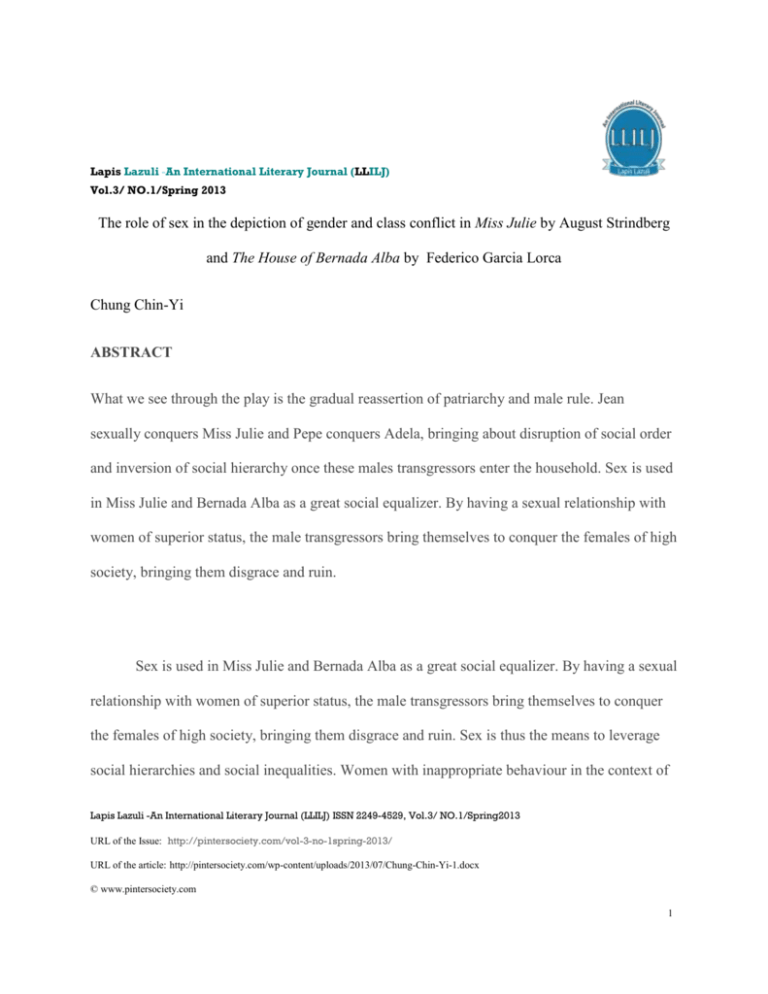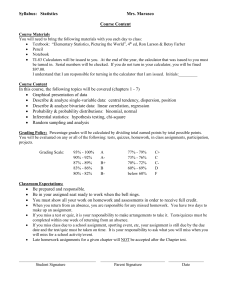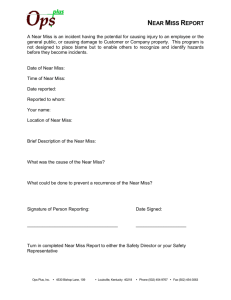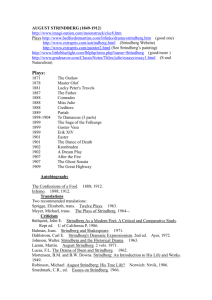
Lapis Lazuli -An International Literary Journal (LLILJ)
Vol.3/ NO.1/Spring 2013
The role of sex in the depiction of gender and class conflict in Miss Julie by August Strindberg
and The House of Bernada Alba by Federico Garcia Lorca
Chung Chin-Yi
ABSTRACT
What we see through the play is the gradual reassertion of patriarchy and male rule. Jean
sexually conquers Miss Julie and Pepe conquers Adela, bringing about disruption of social order
and inversion of social hierarchy once these males transgressors enter the household. Sex is used
in Miss Julie and Bernada Alba as a great social equalizer. By having a sexual relationship with
women of superior status, the male transgressors bring themselves to conquer the females of high
society, bringing them disgrace and ruin.
Sex is used in Miss Julie and Bernada Alba as a great social equalizer. By having a sexual
relationship with women of superior status, the male transgressors bring themselves to conquer
the females of high society, bringing them disgrace and ruin. Sex is thus the means to leverage
social hierarchies and social inequalities. Women with inappropriate behaviour in the context of
Lapis Lazuli -An International Literary Journal (LLILJ) ISSN 2249-4529, Vol.3/ NO.1/Spring2013
URL of the Issue: http://pintersociety.com/vol-3-no-1spring-2013/
URL of the article: http://pintersociety.com/wp-content/uploads/2013/07/Chung-Chin-Yi-1.docx
© www.pintersociety.com
1
The role of sex in the depiction of gender and class conflict in Miss Julie by August Strindberg
and The House of Bernada Alba by Federico Garcia Lorca
social norms bring about their own downfall as they have transgressed the proper role of women
in society.
The sex is brought on by different factors. In Miss Julie the atmosphere of midsummer
night creates a wild and revelling atmosphere with passion overflowing, leading Miss Julie to
indulge in hedonistic sex and wine. (Strindberg 8) In Bernada Alba the oppressive gloom of the
mourning of the father combined with Bernada’s matriarchal control on them leads them to be
excessively stifled and indulge in sexual passion when she has an outburst of sexual feeling for
Pepe. (Lorca 160) Jean has sex with Miss Julie to humiliate her and attempt to transcend his
social class. Pepe is seduced by Adela and feels genuine passion for her.
One should note that sex is associated strongly with shame because the affairs are not
performed within the context of a marriage. While Adela seems victorious that she has ‘enjoyed’
Pepe and Miss Julie tells Jean there are no more barriers between them, the social fabric that held
the two households together is ripped apart by their one act of sexual transgression.
The sexual dynamic between males and females is unequal. Males are allowed to have
multiple partners while a woman who loses her chastity loses her name as well. Having been
ravished by Pepe and Jean, male transgressors of an inferior social status, Miss Julie and Adela
lose their name and honour. Sexual and gender inequality proves greater than class and social
hierarchy. Male dominance proves a mightier barrier than social class or status as their one
2
Lapis Lazuli -An International Literary Journal (LLILJ)
sexual act is enough to throw the entire family into disgrace and thus lower the dignity of the
households they belong to.
To continue on the sexual dynamic, males possess the power to assert themselves over
females in sexual intercourse. Hence Jean conquers Miss Julie and she is reduced to a servant’s
whore,(Strindberg 31) whereas Pepe’s disgracing act drives Adela to suicide as she has been
conquered and lost her family name. (Lorca 185)While Miss Julie and Adela come from female
dominated backgrounds initially, patriarchy and the law of the father gradually reasserts itself
through their sexual liaisons with these men of lower social status and they lose all standing they
have in society without having considered the social implications of their act as there is broader
sexual liberty for men than women. So Miss Julie is reduced to a servant’s whore and bitch while
Adela loses her name and Bernada is frantic to declare she died a virgin. (Lorca 185) In these
plays thus sex is an instrument of corruption and disgrace, a means to transcend social hierarchy,
and a sin which brings out a fall from the garden of Eden as purity is tainted by sexual sin.
In terms of authorial intention, Miss Julie humiliates women, there is an idea that women
are naturally inferior to men in a social Darwinist philosophy.Miss Julie was written during a
time where Strindberg had great contempt for women as he suspected his wife of having an affair
with other women. Hence the hatred and denigration of women reflected in the vulgar language
towards women and Jean as a sexual conqueror and Nietszchean overman who conquers and
destroys Miss Julie proving men are the superior sex. Bernada Alba is sympathetic to the plight
of women. It is based on the real life observation Lorca made of a gloomy household in
mourning over the death of a father and the strong sense of oppression that ensued, leading the
daughters to be suffocated by the oppressive atmosphere of mourning and to break out in sexual
3
The role of sex in the depiction of gender and class conflict in Miss Julie by August Strindberg
and The House of Bernada Alba by Federico Garcia Lorca
passion with a handsome transgressor and the implications of that fall with a man of lower social
class which leads to disgrace the household.Bernada Alba is more feminist in its outlook.
The sex Jean has with Miss Julie is scandalous because she is of a higher class than him.
It is normal for him to have sex with Christine because she is from the same social class as him.
The love between Adela and Pepe is physical and spiritual, Pepe is only attracted to Angustias
for her wealth, and Materio has a spiritual, twisted unfulfilled passion for Pepe.
In terms of literary technique, Strindberg uses the animal copulation between Diana the
bitch and the gatekeeper’s dog to foreshadow Miss Julie’s liaison with Jean. (Strindberg 5) In
terms of diction, Miss Julie uses command words towards Jean, (Strindberg 17) having
pretensions to greater social authority initially, and then is seduced by his flattery and sweet talk;
eventually Jean uses command words and vulgarities on Miss Julie, denigrating her by calling
her a bitch and a whore. (Strindberg 48)Christine is used as a foil to Miss Julie as she is
completely submissive to Jean and accepts women’s subordinated role in society. Jean evokes
the image of a garden to connote the garden of Eden in order to depict his desire as pure and free
from lust, whereas in reality it is the opposite. Miss Julie is high up in the pillar Jean cannot
ascend and he hides behind a tree to connote the remoteness of their social disparity, but all this
is conquered and equalized in the sexual act Jean has with Miss Julie to bring her down from her
social class. (Strindberg 31)It is significant that both plays take place in settings in which
4
Lapis Lazuli -An International Literary Journal (LLILJ)
patriarchy seems initially inverted. The count is absent and the father of the Bernada household
has just died.
However what we see through the play is the gradual reassertion of patriarchy and male
rule. Jean sexually conquers Miss Julie and Pepe conquers Adela, bringing about disruption of
social order and inversion of social hierarchy once these males transgressors enter the household.
Miss Julie initially takes place in the kitchen, a domestic abode in which servants abide, it is the
arena of Jean and Christine and hence Miss Julie is out of her depth when she enters this realm
and is seduced by Jean. The stable, where Miss Julie played games with her fiancé, is a place of
ownership of animals, the same way she treats her fiancé as an animal in commanding him to
jump over her whip. Eventually Jean lures Miss Julie into his room where he is the authority and
commander and asserts himself sexually over her. (Strinberg 85) She gradually declines after the
incident and descends to a servant’s whore, losing her social power and demeaning herself.
When Jean talks about setting up a hotel by the lake overseas, it is a fantasy in which Miss Julie
will just be his servant and his slave, inverting the social hierarchy and reinforcing
patriarchy.(Strindberg 87) Place is thus very significant in Miss Julie as it sets the atmosphere in
which gender conflicts take place and social reversals occur according to the action that plays out
in the very appropriate setting that foretells the action.
Bernada Alba takes place in largely white washed walls and settings, (Lorca 5) amidst
funereal gloom as the family is mourning the death of their father. It is significant that white is
used because white symbolizes purity, which is about to be tainted by Adela’s sexual
transgression with Pepe. The house is also largely confined where men are kept out as Bernada
views them as dangerous and inferior, so the compound becomes largely like a prison. It is
significant that this matriarchy is about to be betrayed by a sexual liason with a male of inferior
5
The role of sex in the depiction of gender and class conflict in Miss Julie by August Strindberg
and The House of Bernada Alba by Federico Garcia Lorca
social status, thus inverting the social order and bringing about destruction to the household.
White symbolizes purity but also oppression because it cannot be tainted, once the sexual sin
takes place and the house is dishonoured chaos breaks out. Hence in Bernada Alba, the white
walls and funereal atmosphere symbolize a chaste prison that is corrupted by one act of Adela’s
sexual sin with Pepe, which brings destruction and ruin to the household. (Lorca 5) Marterio is
used as a foil in contrast to Adela as she does not consummate her passion with Pepe. Imagery of
the rapier and the rose being taken is used to connote the sexual intercourse that takes place
between Pepe and Adela. (Lorca 188)The stable is a place of animal passion, they do not rise
above animal instinct in reducing themselves to animal lust in the heat of the moment. When
Bernada talks to Prudencia about mare mating with horse it mirrors the human situation.(Lorca
176) Sex is depicted as animal instinct and carnal as the men take the woman in the village out
for a night and impregnate her, sex is pure lust in both plays and very physical and carnal.
Hence sex is used in both plays to bring about the downfall of women who have had
affairs with those beneath their class and station. Sex is thus the great equalizer of class and
social difference in both plays.
6
Lapis Lazuli -An International Literary Journal (LLILJ)
Works cited
Strindberg, August. Miss Julie. Hendersons, London, 1914.
Garcia Lorca, Federico. The House of Bernada Alba. Bantam Books, Toronto, New York. 1987.
Bio-note- Chung Chin-Yi has completed doctoral studies at the National University of
Singapore. She has 4 years of teaching experience at NUS, teaching exposure modules and
higher level electives.
7







